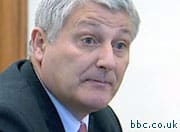An Independent MSP has dropped his bid to reduce churches’ role in Scottish education, following a lack of support for his plans.
Less than a fifth of those who responded to a consultation on a Bill from John Finnie MSP said they backed his position.
Under the 1973 Local Government (Scotland) Act three religious figures should be included on local authority boards.
Value
The legislation says one should be from the Church of Scotland, one from the Roman Catholic Church and a third from another religious organisation.
The Church of Scotland says religious representatives add value in their role, but Finnie describes the current system as ‘anachronistic’.
His Bill would have removed the requirement to include religious representatives on the board, and would have prevented the individuals from being allowed to vote.
In a public consultation – which prompted 207 replies – only 17 per cent said they supported his idea.
Zero prospect
The Revd Sally Foster-Fulton, convener of the Church of Scotland’s Church and Society Council, said: “Clearly, the church was not alone in recognising the added value which religious representatives bring to their participation in education committees.”
Writing on his own website, Finnie said the religious groups’ opposition to the measure meant there was “zero prospect of securing the necessary support to continue”.
In February this year the Scottish Government rejected another attempt to end the practice, saying it supported the “involvement of religious representatives in the decision-making process”.
Major input
David Robertson, a Free Church minister and Director of the Solas Centre for Public Christianity, has previously spoken out in favour of the current system.
He noted the “historic agreement between the churches and the state in Scottish schools”, and said churches have a “valuable” role to play.
“We hope to continue to have a major input into Scotland’s education system – for the sake of Scotland’s children.”

